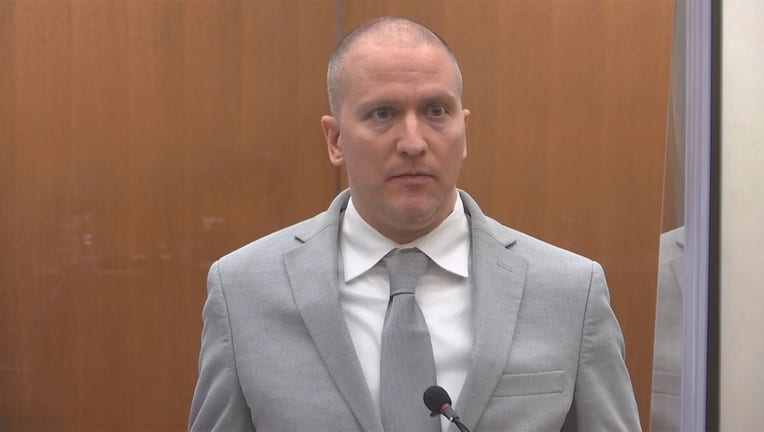Chauvin appeals conviction in George Floyd’s murder to the Minnesota Supreme Court

Derek Chauvin speaks at his sentencing on June 25, 2021.
ST. PAUL, Minn. (AP) - Former Minneapolis police officer Derek Chauvin appealed his murder conviction in the killing of George Floyd to the Minnesota Supreme Court on Wednesday, saying the district judge’s decision not to move the proceedings out of the city deprived him of a fair trial.
His attorney, William Mohrman, filed a petition for review with the state’s highest court a month after the Minnesota Court of Appeals upheld Chauvin’s conviction for second-degree murder and let his 22 1/2-year sentence remain in place.
Morhman had unsuccessfully asked the appeals court to throw out the ex-officer’s conviction for a long list of reasons, including the massive pretrial publicity. But the three-judge panel last month sided with prosecutors who said Chauvin got a fair trial and just sentence. Chauvin raises several of those arguments again in his latest appeal.
"We’re very hopeful that the Minnesota Supreme Court will accept review of the case," Mohrman said.
Floyd died on May 25, 2020, after Chauvin, who is white, kneeled on the Black man’s neck for 9 1/2 minutes. A bystander video captured Floyd’s fading cries of "I can’t breathe." Floyd’s death touched off protests around the world, some of which turned violent, and forced a national reckoning with police brutality and racism.
The Minnesota Supreme Court could agree to hear Chauvin’s appeal, in which case it would ask each side for detailed briefs and later set a date for oral arguments. Or it could let the Court of Appeals ruling stand.
Morhman wrote in the petition that the case presents the state Supreme Court with important questions on "developing and clarifying due process requirements to transfer venue when there is unprecedented pervasive pretrial publicity coupled with community violence."
He also wrote that it raises issues about rules regarding juror misconduct. One juror participated in a civil rights event commemorating the Rev. Martin Luther King Jr.’s March on Washington, D.C., a few months after Floyd’s death. Only after the trial did the juror reveal that he had been there. The Court of Appeals declined to send the case back to the trial judge for a hearing on whether the juror’s nondisclosure constituted misconduct.
Chauvin pleaded guilty to a separate federal civil rights charge and was sentenced to 21 years in federal prison, which he is now serving in Arizona concurrent with his state sentence.
"Police officers undoubtedly have a challenging, difficult, and sometimes dangerous job. However, no one is above the law," Judge Peter Reyes wrote for the Court of Appeals last month. "When they commit a crime, they must be held accountable just as those individuals that they lawfully apprehend. The law only permits police officers to use reasonable force when effecting a lawful arrest. Chauvin crossed that line here when he used unreasonable force on Floyd."

